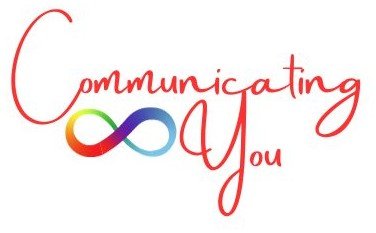Change is good. Let’s discuss disabilities and supports.
Did you know that “disability” is not a “bad” word? Disability activists have been reclaiming that word and have pointed out that alternative phrases like “differently abled” or having “superpowers” don’t describe them. Sometimes there are simply things that people cannot do. There is nothing wrong with being disabled, and when disabilities are framed (often by well-intentioned non-disabled people) as “different abilities” or as “superpowers,” it implies that disabled people somehow have extraordinary abilities that non-disabled folks don’t. Last time I checked though, disabled people aren’t growing wings and flying, reading people’s minds, or shape-shifting into animals. Everyone has things they can and cannot do, but disability has less to do with someone’s particular diagnosis and more about how society and cultures often treat people with disabilities. Phrases like “different, not less” are often used, and those ideas are great, but those phrases in and of themselves imply that something in society inherently deems disabled folks as being less than.
How do we really determine what a disability is? That answer is often found by examining the “norms” in society and what is most widely catered to in society. For example, in the midwest American society I live in, it is assumed that most people are probably going be white, straight, sis-gendered, can walk, focus on topics/tasks for long periods of time, use spoken language (Standard American English with a midwestern accent) to communicate, learn and retain new information independently, see with 20/20 vision, hear, do certain tasks within a (often assumed) period of time, etc. As adults especially, it is assumed that “independence” is the “norm” and anything done with assistance is somehow suspect, less than, or even childlike. What happens when you are outside of that “norm,” though? What happens when the world is not catered to you? Often times, people are disabled by the society or the culture around them.
When thinking about disabled, autistic, and other neurodivergent folks, conversations are often had about the “levels of impairment” or “severity.” Think about that though - it’s only “impaired” if society is not set up for accommodating that person. If all architecture was designed with ramps/handrails, elevators, seamless flooring transitions, etc. as the norm and not stairs/steps, then would not being able to walk be a disability? Nearly everyone can use a ramp, but yet stairs are the “norm” (I credit authors/activists such as Rebekah Taussig and Judy Heumann for my shift in thinking here). If society embraced/accommodated all languages, everyone’s communication styles and preferences, and readily made accessible and accepted a variety of communication modalities (spoken language with interpreters, spelling, pictures, written communication, non-vocal gestures, pointing, eye gaze, etc.) for both expressing and understanding one another in all environments, and didn’t bind anyone to time limits, would anyone have disabled communication? Rather than thinking about disabilities in regards to “levels” or “severity,” what if we just considered the level of supports or accommodations people need?
In autistic circles, the phrase “assume competence” is often used. Just because a person may not communicate vocally or in a way that society deems as “typical,” does not mean they don’t understand you - assume they do. The reverse point is also true, though - if a disabled person communicates to you that something is not possible or is painful or uncomfortable for them, believe them. Disability looks different for people on different days, different times of day, and for some, minute to minute. Just because a disability is not visible does not mean it’s not real. We would do far more to think about what accommodations or supports a person needs at a given time than describe human beings by terms like “impaired.” If it’s society that can disable someone, then society needs to accommodate/support a far wider range of people so that it disables less and less.
None of us is as independent as we think we are. Think about how often you are interdependent on others and think about what supports you use to help you get through your day. It’s okay to ask for and receive help. It’s okay to give help as well, as long as you’re respecting the receiver’s definitions of what’s helpful to them and what’s not. Take a look at the world around you and do your part to make changes if you notice that you, as part of society, are disabling someone else. These shifts take time and I am and will continue to work on dismantling my own ableism as a life-long journey. I’d love to have you join me.
As always, I have not come to these thoughts on my own. Listed below are some great organizations that provide supports for autistic folks, along with a small sample of authors/books from disabled folks that have helped shape my journey.
Supports/Training:
Autism Level UP! AUsome Autism Training The Autistic Advocate - Kieran Rose
Great Books:
Being Heumann by Judith Heumann Sitting Pretty by Rebekah Taussig Disability Visibility Edited by Alice Wong Demystifying Disability by Emily Ladau
Sincerely, Your Autistic Child by Autistic Women and Nonbinary Network I Will Die on This Hill by Meghan Ashburn, Jules Edwards
